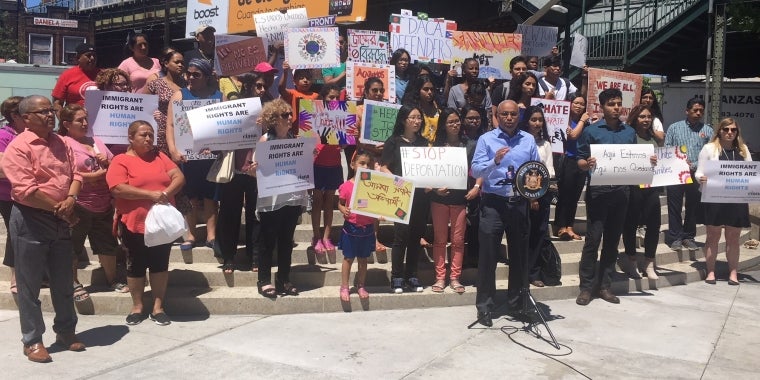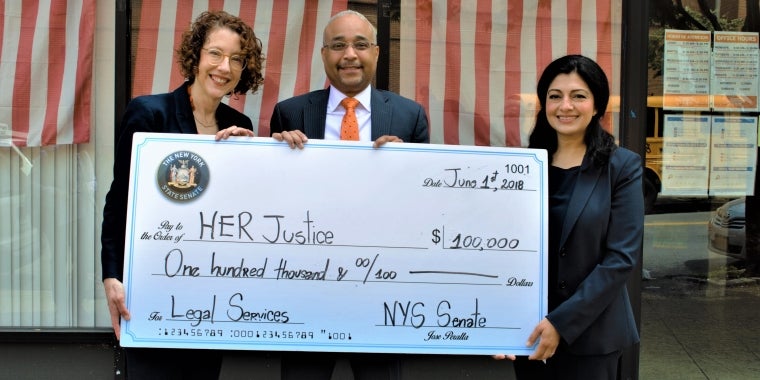
Tenants complain about MCI-based rent hikes
More than 100 Queens residents, many recent immigrants, cast aside their cultural differences and language barriers at a meeting at Sunnyside Community Services last Thursday to campaign against rent increases they say landlords are making unjustly.
City rent guidelines state that when owners make what are considered major capital improvements to a building, they can increase the rent in accordance with the cost of the improvements. However, some claim tenants are being taken advantage of.
“It’s a tragedy that renters have to go through this.They’ve shown me pictures from people of LeFrak of what was actually fixed and they were very minor. It doesn’t even qualify for an MCI,” said state Sen. Jose Peralta (D-Jackson Heights) at the rally.
When MCI-based increases happen in rent -controlled or rent-stabilized housing, they often impact low-income immigrant communities.
Carmela Muzio Dormani, a tenant organizer fighting against the increases, said she has received hundreds of complaints from residents living in a dozen buildings at a tenant clinic run by the Immigrant Tenant Advocacy Project where she works.
“There’s been this huge influx of people receiving notifications about these MCIs. People are getting, two, three, four, MCIs right after each other,” said Dormani. “People just come in by the dozens.”
While MCI-based increases may seem like an easy way to raise revenue, if building owners are spending money on making needed improvements, they are legally justified. Some improvements which may qualify for MCI-based rent increases include installing security cameras, replacing a boiler or installing a new roof.
Residents may not opt out of paying for building maintenance, though the state’s Division of Housing and Community Renewal, which oversees MCI-based increases is only supposed to allow them if owners can prove that improvements were needed and performed.
Il Sun Park, a tenant, said that in some cases, landlords do not follow MCI-based rent increases with action.
“In my apartment, fences were supposed to be erected but because they were not, my apartment was robbed,” said Park, whose words were translated from Korean to English and Spanish.
In other cases, tenants alleged the improvements in question are not inspected properly by DHCR inspectors.
James Plastrias, a spokesman for the agency, said inspections are performed if a tenant complains. “We also inspect on a random basis to check whether the work was adequately completed,” he wrote in an email.
If tenants think MCI-based rent increases in their buildings are unjust, they have the opportunity to challenge them with the DHCR, however, renters unable to read English say they have problems understanding and responding to notifications of increases.
“We want changes in the language so that it will be clear for us,” said Juana Suevo, a Jackson Heights resident, addressing the audience through a translator. Suevo, 67, received an MCI increase 3 years ago and is still paying the higher price. Many MCI rent increases are permanent.
According to the DCHR, translators are available for those who don’t understand English. Plastiras wrote: “Our MCI notices all have a phone number prominently displayed. We have counselors who speak Spanish, French, several dialects of Chinese and other languages. The counselors will explain the notice and advise them what they should do if they wish to respond or contest the application.”
However, Queens residents will continue to campaign for change.
“MCIs have been around for a while but they are really a main problem for tenants in Queens right now because so many people are experiencing them and the rent is shooting up. It’s a really big threat to affordable housing and safe, productive, communities,” Dormani said.
Building owners did not respond to requests for comments regarding MCI-based increases by press time.
by Marium Sattar, Chronicle Chronicle Contributor



